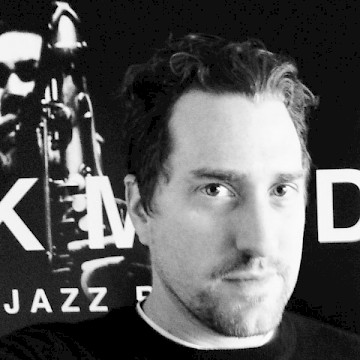 Ah, radio.
Ah, radio.
Radio is magic. Radio is vital. And radio is political. The Rose City may be as typical as anybody when it comes to radio waves, especially if you’ve followed the glorious rise of Clear Channel Communications (now known as iHeartMedia, Inc.), a major U.S. corporation that took full advantage of the Telecommunications Act of 1996—a crafty and likely lobbyist-driven legislative move that deregulated yet another industry in the name of free-market enterprise—to acquire, to date, some 1,200 radio stations across the American landscape and dictate much of what we listeners listen to. The act allowed the single ownership of up to eight stations in one market at that time (later amended in 2003 to allow up to 45 percent ownership). Where there is politics there is usually money. Lots of it. And Clear Channel took it to heart.
Today, iHeartMedia’s next nearest competitor is Cumulus Media, which owns some 525 stations (six in Eugene), followed by CBS Radio, Inc. (formerly known as Infinity Broadcasting), which owns a paltry 117 stations, give or take, and sold its Portland stations in 2009. iHeartMedia, for whatever good it may have done or be doing for radio, is also the chief reason that commercial radio is the homogenized, monopolized and financially successful mess that it is—at least from a listener’s viewpoint. And it’s changing all the time.
 Up against the airwave-sucking juggernaut of iHeartMedia (which owns nine of Portland’s radio stations), a tiny little radio bastion like Portland’s KMHD simply shouldn’t exist. It took to the airwaves in 1984 on the campus of Mt. Hood Community College with a mission to play America’s indigenous music—jazz—and was staffed largely by retirees and devotees, mostly amateurs, and has since enjoyed a 30-year on-air run, without actually serving the MHCC student body as a communications laboratory. Despite its shortcomings, it is among the oldest listener-supported jazz station in the country.
Up against the airwave-sucking juggernaut of iHeartMedia (which owns nine of Portland’s radio stations), a tiny little radio bastion like Portland’s KMHD simply shouldn’t exist. It took to the airwaves in 1984 on the campus of Mt. Hood Community College with a mission to play America’s indigenous music—jazz—and was staffed largely by retirees and devotees, mostly amateurs, and has since enjoyed a 30-year on-air run, without actually serving the MHCC student body as a communications laboratory. Despite its shortcomings, it is among the oldest listener-supported jazz station in the country.
As grant monies to support the station began to dry up, a problem pandemic to all listener-supported public radio stations, alongside other management issues, KMHD hit a crossroads five years ago. Oregon Public Broadcasting president and CEO Steve Bass, on an annual tour around various public broadcasting facilities, learned in a discussion with then-MHCC president John Sygielski (affectionately, and necessarily, known as “Ski”), that the college station needed help and was considering selling the KMHD license to help offset a $4 million budget shortfall and significantly reduced state funding.
“It had 63 volunteers,” says OPB’s vice president of programming and current KMHD station manager Lynne Clendenin, who’s been with OPB for 26 years, “that were all retirees and jazz lovers. There was only one actual student from MHCC. [Bass and Sygielski] talked about a partnership. We didn’t want to see the college let it go.”
Bass brought the idea to Clendenin and others on the OPB board, where a plan was hatched to offer a license management agreement to MHCC and bring the station under its wing. By 2009, the deal was complete and operation of KMHD came under the auspice of OPB (save for an HD2 license that MHCC retained). There were, of course, major trepidations and fears on several levels and fronts.
“Some folks were suspicious,” Clendenin admits. “OPB had recently gone to a more mixed radio format, more news. There were concerns that we’d take jazz off the air.”
Enter another would-be driving force. Current KMHD program director Matt Fleeger, a lifelong radio addict who’d been involved at various levels in radio for 18 years, caught wind of Bass’ proposed agreement with MHCC while he was working in radio in San Antonio, Tex., and was intrigued by the move. He had some consulting experience with radio format changes and felt he had something to bring to the party. Having worked as a consultant for Bass, when the position of program director opened up, “I immediately applied,” he says.
 KMHD program director Matt FleegerFleeger was hired in 2009 and immediately set about sharpening the station’s focus. “There were some dissatisfied DJs out there,” he says, “bad blood with management and the DJs. Their chief complaint was that they wanted to be more professional.”
KMHD program director Matt FleegerFleeger was hired in 2009 and immediately set about sharpening the station’s focus. “There were some dissatisfied DJs out there,” he says, “bad blood with management and the DJs. Their chief complaint was that they wanted to be more professional.”
Radio tradition dictated that KMHD’s new managers start with a clean slate, but Fleeger took a different tack. “Jazz is not dead,” he says. “It’s the richest thing to mine in the 21st century.” Rather than fire everybody and start over, Fleeger wanted to look for the passion, knowledge and musical diversity of the DJs. Some stayed, but many left, taking a sour taste with them.
One who made the transition, but left for different reasons, was Steve Pringle, now a successful on-air personality at KINK. He hosted the wildly successful Friday Freeway Blues show for 16 years and witnessed the inner workings firsthand. “I saw them [staff and management] come and go,” he says. “Basically, KMHD had become a cancer upon itself. It couldn’t get anything done. The paid staff had so much animosity toward each other. And they didn’t want to change anything. They couldn’t run it. ”
Pringle was offered the station manager job right as the agreement was coming together, but the KINK opportunity was too great to pass up. In spite of the turmoil and transition, “In my opinion, it went smooth,” he says. “It was going to go under. They brought that kid Matt Fleeger in and moved it forward.”
 Musician, teacher and 2012 Oregon Music Hall of Fame inductee Calvin Walker: Photo by Tim Sugden courtesy of About Face MagazineCalvin Walker, a longtime Portland musician and now director of student services at MHCC, was at the station for 11 years doing development (i.e., raising money). As the transition began to take shape, he says, “People were generally mortified. Anyplace you hang is going to have a culture. Mt. Hood was a special place. When it happened, it made everybody paranoid. But life changes. It’s commendable what they’ve done. It’s cool that it’s still a jazz station.”
Musician, teacher and 2012 Oregon Music Hall of Fame inductee Calvin Walker: Photo by Tim Sugden courtesy of About Face MagazineCalvin Walker, a longtime Portland musician and now director of student services at MHCC, was at the station for 11 years doing development (i.e., raising money). As the transition began to take shape, he says, “People were generally mortified. Anyplace you hang is going to have a culture. Mt. Hood was a special place. When it happened, it made everybody paranoid. But life changes. It’s commendable what they’ve done. It’s cool that it’s still a jazz station.”
It’s been an arduous process over the past five years, of removing and replacing, of shoring up professionalism, of honing the focus of the station, but most importantly, doing the things that would not only satisfy regular listeners but perhaps draw in new ones. There were ruffled feathers and bruised egos, but in the end, this station that’s run by essentially one full-time staffer (Fleeger), two part-timers and scores of volunteers is able to draw from the existing infrastructure of OPB, thereby reducing its operating overhead, while continuing to take big strides forward.
Numbers are up, from some 75,000 listeners in 2009 to an estimated 125,000 today, according to Fleeger. The station relies on very little canned programming (the big nod is to Live from Lincoln Center, the only pre-programmed show KMHD actually purchases), while covering jazz in its broadest sense—from straight-ahead jazz to rich slices that include Latin music, the blues, traditional jazz, experimental, funk and more. That focus and refinement led the station to capture a major Station of the Year award in 2012 bestowed by JazzWeek, an industry publication, for markets with one to 25 jazz radio stations. It was a huge win.
 “All of the volunteers were extremely proud,” Clendenin says of the award. “It proves that there is some there, there.”
“All of the volunteers were extremely proud,” Clendenin says of the award. “It proves that there is some there, there.”
In his official release, Bass lauded the accomplishments of the station in the three years since MHCC and OPB formed the partnership to operate the station, including growing its audience and becoming a more important part of Portland's cultural landscape.
Additionally, “JazzWeek’s recognition of how far KMHD has come is a testament to the great work that KMHD's staff and volunteers have accomplished,” Bass said. “This partnership has allowed an important cultural asset and a unique format to be not just preserved but enhanced.”
Still, Fleeger says, “I think we’re at about 70 percent of what it could be.” And by that he means expanded programming. He’s continually on the hunt for impassioned talent. His M.O. for finding eager volunteer DJs is simple: “I sit down with them and we talk about music. I tell them to make me a mixtape of their favorite music.”
Sunday evening DJ Carlton Jackson, himself a major player in the Portland music scene as one of the city’s finest drummers, is a strong case study. Fleeger had heard Jackson on-air doing fill-in spots for KBOO radio in Portland, which he’d done since 1983, and subsequently ran into him at an event. “He introduced himself and said, ‘Hey, I heard you on KBOO. I like what you do. Come over to KMHD.’”
 DJ Carlton Jackson shares his view of KMHDIt was a process that would repeat itself throughout the station with Fleeger’s development of programming and DJs. The pair sat down and compared musical notes. Fleeger suggested a show idea that would become KMHD’s Sunday bedrock, The Message, a deeply soulful three hours that draw heavily on the African-American experience as expressed in jazz. Jackson, like most of the DJs under Fleeger’s wing, strove for professionalism, a mark of the station these days. “[The station] lets everybody do what they’re good at. I make it interesting,” Jackson says of his personal edict. “I put things in context.”
DJ Carlton Jackson shares his view of KMHDIt was a process that would repeat itself throughout the station with Fleeger’s development of programming and DJs. The pair sat down and compared musical notes. Fleeger suggested a show idea that would become KMHD’s Sunday bedrock, The Message, a deeply soulful three hours that draw heavily on the African-American experience as expressed in jazz. Jackson, like most of the DJs under Fleeger’s wing, strove for professionalism, a mark of the station these days. “[The station] lets everybody do what they’re good at. I make it interesting,” Jackson says of his personal edict. “I put things in context.”
More changes are in the offing, more growth, more professionalism. Not bad for a small station that, in this world, shouldn’t really exist.









